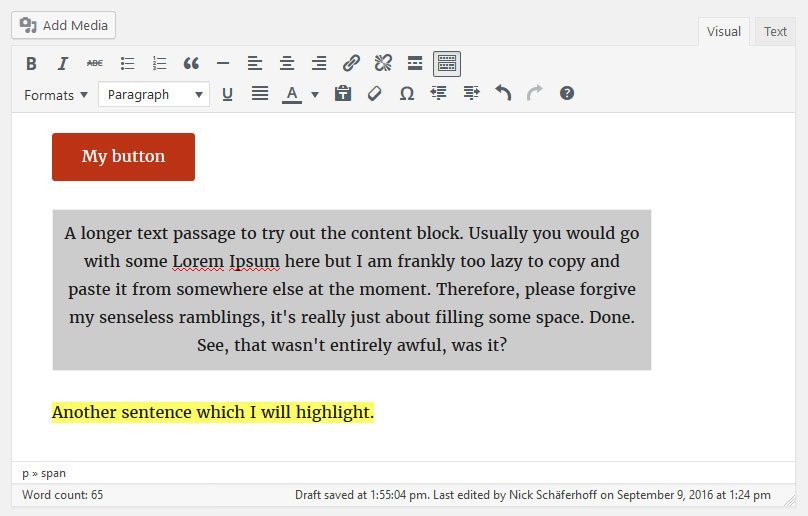The effect WordPress had on the world of online publishing can not be overstated. The platform has revolutionized the Internet by enabling countless individuals to start their own business and web entities. Loved by entrepreneurs, startups, and small business owners, it now powers almost 28 percent of the entire Internet.
Yet, while most popular on the small scale, in recent years WordPress has also made strides in the enterprise sector. In fact, we have a whole article on world-famous brands, companies, and celebrities that use the CMS.
Users increasingly turn to WordPress even for large projects with sometimes thousands of pages. Yet, is that the right move? Is WordPress truly ready to be an enterprise-grade CMS?
The following article will attempt answer this question. We will first define what we mean by “enterprise” in this context and then look into the scalability and suitability of WordPress.
Are you ready? Then let’s get right to it.
What We Mean By “Enterprise”
While people like to use the word “enterprise” freely, it really has no set definition. In the context of business, it usually means large, multinational business entities that often consist of many different departments and branches.
Consequently, when it comes to websites, the word usually denotes sites that reflect the complexity of the parent company. That means a site with a large structure, many subsites and large amounts of traffic. In addition to that, these sites often come in several languages in order to cater to different target markets.
Plus, as opposed to single-owner websites, enterprise sites often have teams running its different parts and thus need to accommodate groups of users with different levels of permission.
As we will see in the following, WordPress is more than ready to handle these requirements.
Is WordPress The Right Enterprise Solution For You?
Alright, now that we have our definition, let’s dive into reasons why WordPress can be both a good and bad option for your enterprise website.
WordPress is Highly Reliable
Reliability is one of the strong suits of the WordPress platform and it is visible in many different ways.
Frist of all, there is the strong emphasis the developers put on backward compatibility. That means, the code you write today isn’t going to break with the next update, something that can’t be said about all other CMS out there (*cough* Drupal *cough*).
Besides that, they also put a lot of emphasis on making WordPress future proof. Modern technology like the JSON REST API, a recent emphasis on JavaScript and other improvements are just the latest examples of that.
A third sign for the platform’s reliability is its focus on security. For that reason, we not only have a dedicated security team including industry experts who deal with these issues but also swift and automatic security updates for all WordPress websites should a vulnerability be detected.
As a consequence, there has never been a major exploit of an updated WordPress version. Of course, there have been issues, mostly stemming from plugins and themes. However, if you follow security best practices you are completely on the safe side.
Finally, WordPress’ dedicated and predictable development cycle ensures new versions with additional features, improvements, and other updates come out regularly.
Highly Flexible for Any Type of Use Case
WordPress is extremely flexible. You can use the platform for pretty much any purpose, not just building websites. It can function as a backend for JavaScript surfaces and even mobile apps.
In fact, whatever you are trying to build on your site, it’s likely that a solution already exists in the form of a plugin. If not, WordPress offers robust APIs to develop your own.
Aside from that, everything about the CMS is highly customizable. There’s pretty much nothing that can’t be customized through page templates, CSS, plugins, and other means. Even the WordPress editor can be completely customized to your needs.
In addition to that, mobile friendliness is now a standard feature for all themes added to the WordPress directory. Even if yours isn’t yet, there are ways to make any theme responsive.
Speaking about responsiveness: the WordPress backend adjusts to any screen size, making it possible to run your site from your phone or tablet.
Then there is the multi-site feature that allows you to build a network of websites from just one WordPress installation. Add subdomains, subdirectories, and standalone sites to your network without setting up additional entities and manage everything from a central dashboard.
Perfect for enterprise-sized websites and highly scalable as examples like WordPress.com and Incsub prove. Both of these handle literally millions of pageviews per day.
If that wasn’t enough, WordPress is constantly being developed, improved, and innovated to make it even better and more powerful.
Open Source to Your Advantage
One thing that most people are surprised to learn about WordPress is that it is completely free to use due to its nature as an open source product. Thanks to the GPL license, anyone can do with the software as they please. This is very different from proprietary, closed systems that often limit users in one way or another and cost licensing fees to boot.
The ascent of open-source software is visible in other areas as well. Linux continues to grow and Internet giants Google and Facebook are increasingly embracing open source as well.
We have already seen how making the software free to use has contributed to the flexibility of the platform. With an experienced developer, you are able to make the CMS behave in any way you want.
As a consequence, the WordPress ecosystem has grown incredibly over the years with multitudes of developers, designers, agencies, and other WordPress professionals freely available. This is also visible in last year’s WordCamps which were the largest to date (though likely to be eclipsed this year).
This gives you easy access to a lot of expert knowledge. So, whatever your site needs, it’s likely you’ll be able to find affordable help easily.
In addition to that, the size of the WordPress sphere has allowed the platform to be tested on literally millions of websites with different server setups and other variables. This has had a large part in turning it into a stable, sophisticated, and mature product.
Made for Content
Content marketing is everything on the Internet these days. Almost no company on the web can do without publishing high-quality content.
With its background as a blogging platform, that plays to WordPress’ strengths. The CMS offers loads of features to make content creation as convenient as possible. From the WordPress editor with its many options to drafts, automatic scheduling, revisions, and other features.
Aside from that, WordPress comes with strong SEO game out of the box. Custom permalinks, optimized markup (depending on your theme) and other standard features make WordPress sites easily digestible for Google.
In addition to that, you have plugins for SEO, social media integration and every other tool you can think off to make your content-centric site a success. Examples like TechCrunch and Wired, who have hundreds of thousands of pages serving millions of visitors every day, show that this also works for enterprise-scale web presences.
Ready for Teams
WordPress also offers loads of features to help run a website with more than one person.
First, there are user roles with different levels of permission. They allow you to give users only as much power as they need. Should none of them be right for you, you can also create your own user roles to adapt to your needs.
In addition to that, the WordPress admin panel is extremely user-friendly. Even people who have never worked with a CMS will quickly get their bearings.
Finally, there are plenty of tools out there to improve your editing workflow.
Internationalization Made Easy
The WordPress community itself has recently put in a concerted effort to translate the software and make it available to more people around the world. Measures like translation day helped to increase the number of languages available to WordPress users.
As a consequence, WordPress is currently available in over 100 languages. They best part: since version 4.7 each user can pick their preferred language for their admin panel. That way, WordPress can be customized to fit individual needs of your team even further.
However, not only those running the site, also those visiting its frontend should be able to have the site in their own language. Luckily, WordPress users have plenty of translation plugins that allow them to do so.
Enterprise-Level Hosting Available
Finally, since WordPress is becoming more and more popular at the enterprise level, the number of specialized hosting providers for this purpose is steadily increasing.
Running large sites at optimal performance requires a lot of heavy lifting. For that reason, anyone serious about their enterprise site is well advised to take advantage of hosting providers specialized in this area.
WordPress.com itself offers enterprise service but there are also others that can do wonders for the performance of your site.
Is WordPress an Enterprise CMS?
WordPress has long been the go-to tool for small business owners, solopreneurs, and other smaller sites. However, over time it has also turned into a full-fledged solution for larger sites.
Still, the question whether WordPress is the right solution for enterprise-level projects comes up frequently. After going through the points above, the answer is a resounding yes.
WordPress has all necessary features to work as a full-blown enterprise CMS. It is reliable, flexible, scalable, affordable, and ready to accommodate the needs of any client. The platform handles content extremely well, has a large, passionate community behind it and is ready for teams and international markets. What more can you wish for?
Are you using WordPress at the enterprise-level or do you know other examples? What is your opinion? Please let us know in the comments section below.




12 Comments
Join the conversation